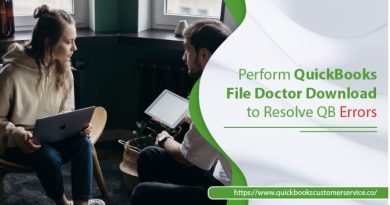5 Smart Strategies to Prevent Debt
Achieving financial stability might seem like an unreachable dream, but it is possible with hard work. Avoiding the burden of debt has become a crucial aspect of sound money management. With the right strategies, it’s possible to steer clear of overwhelming levels of debt.
Here are five smart strategies that can help you prevent debt and build a solid foundation for your financial future.
1. Spend Less Than You Earn
One fundamental principle of financial health is to spend less than what you earn. It sounds simple, but you might struggle with knowing how to live below your means. Start by creating a realistic budget that outlines your monthly income and necessary expenses. Differentiate between needs and wants, prioritizing essential spending while cutting back on non-essential items. By consistently living below your means, you not only prevent accumulating unnecessary debt but also create opportunities to save and invest for the future.
To reinforce this strategy, consider setting specific financial goals. Whether it’s saving for a vacation, a down payment on a home, or building an investment portfolio, having clear objectives provides motivation and focus. Regularly revisit and adjust your goals as your financial situation evolves, ensuring that your spending aligns with your broader objectives.
2. Have an Emergency Fund
Establishing an emergency fund is a key component of a debt-prevention strategy. Life is unpredictable, and unexpected expenses can arise at any time. Having a dedicated fund for emergencies provides a financial safety net, reducing the likelihood of relying on credit cards or loans to cover sudden costs. Aim to save three to six months’ worth of living expenses in your emergency fund, ensuring you have a buffer to weather financial storms without resorting to debt.
An emergency fund also contributes to peace of mind. Knowing that you have a financial cushion allows you to navigate challenging situations with confidence. It provides a sense of security, empowering you to make decisions based on long-term considerations rather than immediate financial pressures.
3. Use Credit Cards Wisely
Credit cards can be both a useful financial tool and a potential source of debt. To prevent debt, it’s essential to use credit cards wisely. Pay your full balance each month to avoid interest charges, and be mindful of your credit limit. Only use credit cards for planned expenses that you can cover with your existing budget. By being disciplined in your credit card usage, you can benefit from rewards and convenience without falling into the trap of accumulating debt.
Regularly review your credit card statements to track your spending patterns. Identify any recurring expenses or subscriptions that may be draining your finances unnecessarily. This practice ensures that you stay vigilant about your financial habits.
4. Prioritize High-Interest Debt
If you already have existing debts, prioritize paying off high-interest ones first. Identify loans or credit cards with the highest interest rates and focus on eliminating them as quickly as possible. By doing so, you reduce the overall cost of your debt and free up more money for other financial goals.
Consider employing strategies like the debt snowball or debt avalanche method to systematically tackle your debts and gain momentum in your journey toward a debt-free life.
In addition to paying off high-interest debt, explore opportunities to negotiate lower interest rates with creditors. Contacting lenders and demonstrating a commitment to repayment may result in more favorable terms, ultimately accelerating your debt payoff journey.
5. Continue to Educate Yourself
Knowledge is a powerful tool in personal finance. Continuously educate yourself about money management, investment strategies, and financial planning. Understanding the intricacies of finance empowers you to make informed decisions, avoid common pitfalls, and optimize your resources.
Attend workshops, read books, and stay updated on financial news to enhance your financial literacy. The more you know, the better equipped you are to navigate the complexities of personal finance and avoid falling into debt traps.
Consider seeking guidance from financial professionals or mentors who can provide personalized advice based on your unique situation. Their insights can offer valuable perspectives and help you make sound financial decisions aligned with your goals.
Conclusion
Preventing debt is a proactive approach that requires a combination of discipline, planning, and financial literacy. By spending less than you earn, building an emergency fund, using credit cards responsibly, prioritizing high-interest debt, and investing in continuous financial education, you can pave the way for a financially secure future.




